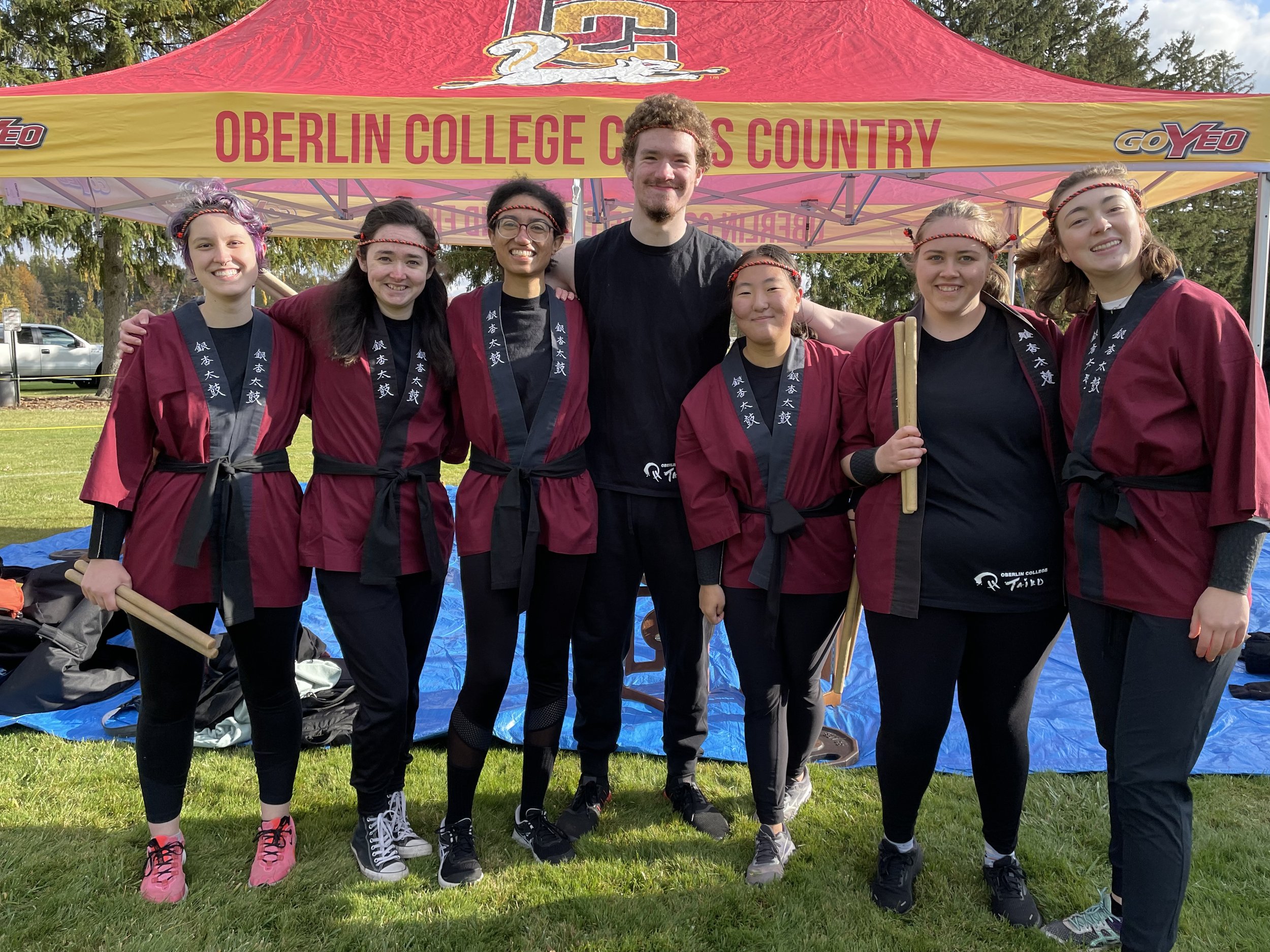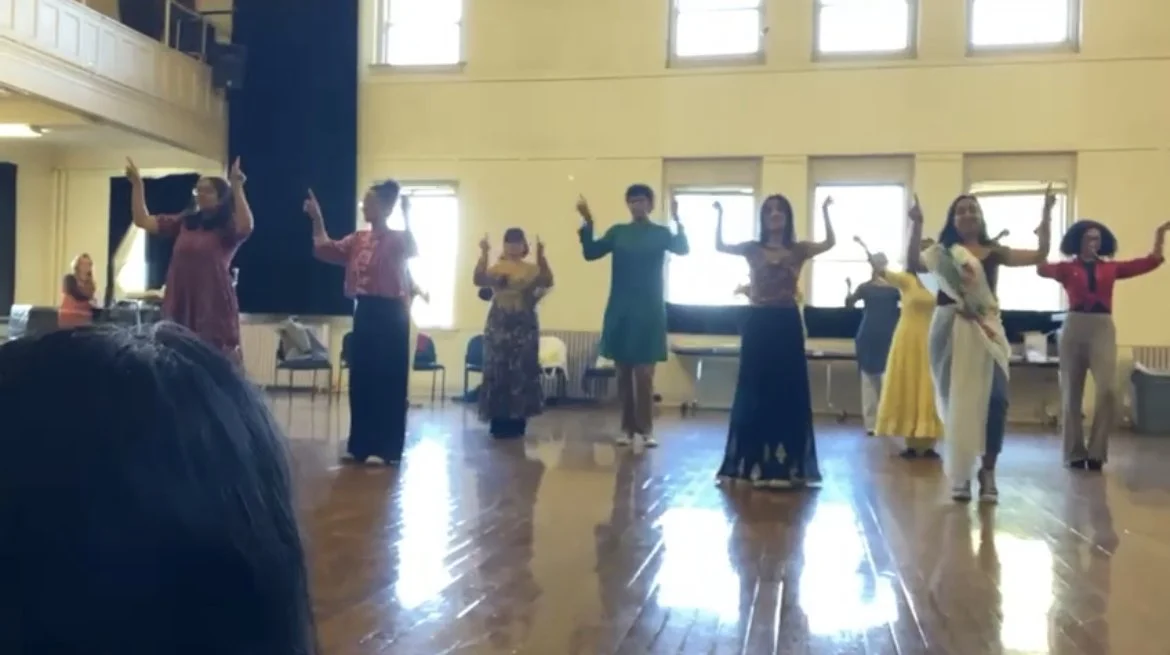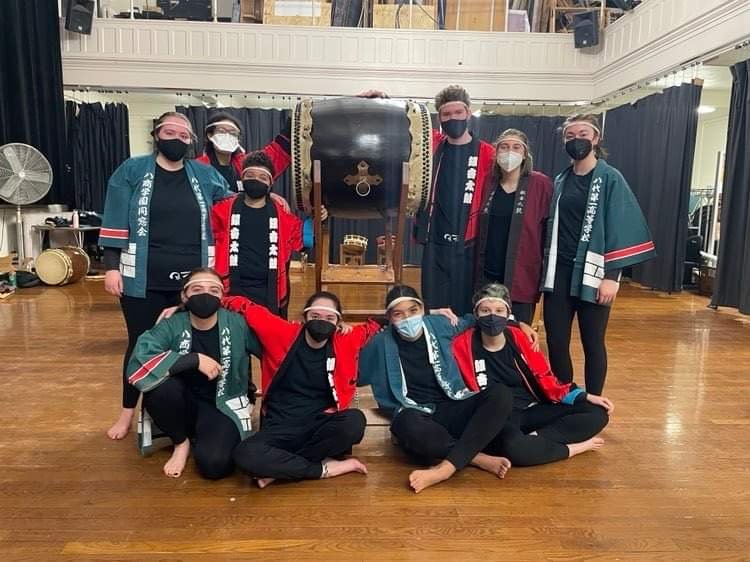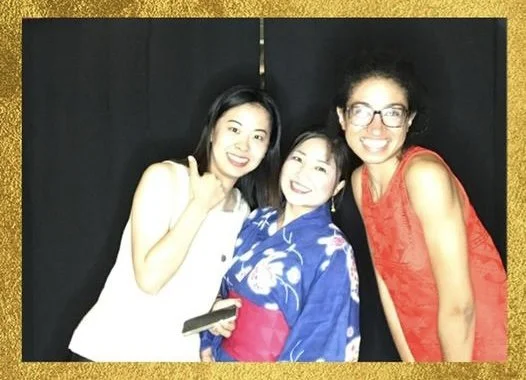‘Til the Water Runs Clear
By Harper Ross ‘22, Taigu Fellow 2022-2024
How do you re-enter a place you’ve said goodbye to? How do you plan for the future when the parameters of your plan are ever-shifting? How do you put down roots when you know you will have to leave?
These are a handful of the most pressing questions that I faced in my first semester as a Shansi Fellow living and working domestically. When I was selected as a fellow, throughout my language tutoring and orientation sessions, I was preparing myself to make a way in the totally unknown environment of Taigu, China. I had no misconceptions that that was going to be an easy task, but it was one that I had psyched myself up to face. As it turns out, I was totally unprepared to take on the task of reintegrating into the familiar when I moved back to Oberlin to await the chance to apply for a Chinese visa.
When I returned to Oberlin after graduation to teach remotely, I found that everything was slightly shifted. An image just a bit out of focus. Yes, the King building was still where it had always stood, but the walls and flooring had been changed over the summer. Yes, both libraries where I worked still opened their doors by 8:30 in the morning to welcome patrons, but my Conservatory supervisor had left his position in July, and the Main Library was single-staffed instead of having its old two-person shifts. I saw plenty of people on the sidewalks of campus, but I no longer saw my best friends heading into Severance or passing me by in Wilder Bowl.
While I waited for China to start granting Americans work visas, I tried to take advantage of the incredible opportunities for cultural exchange that being in Oberlin allowed: I practiced and performed with a Japanese drumming group and a South Asian dance group, and I took extra classes in Mandarin language study. I tried hard to be grateful for the Oberlin opportunities that a still-closed China allowed me to experience. But everything I signed up for was tempered with a warning: I might have to leave part way through this commitment.
An unknown departure date can really limit your planning abilities.
Of course, amidst these questions of departure and the uncanny valley of being back in Oberlin, there was the totally new experience of teaching approximately three hundred students with whom I could not communicate flawlessly. The end of the semester and the opening of China brought about a new wave of challenges for my students, too, as COVID cases skyrocketed nationwide for the first time in years. Dozens of my students fell ill, some severely so.
Despite all these challenges, there were real moments of brilliance that reminded me why Shansi’s continued partnership with Shanxi Agricultural University is so vital. When the university’s assessment of online teaching heralded a switch from asynchronous to synchronous classes, despite the difficulties of time zones, almost half of my students managed to attend my live lessons. The connections between myself and my students deepened significantly. They saw more of my personality, they asked questions about me, they asked questions about American culture.
During finals season, I had the chance to speak with many of my students individually and in small groups. While some of them had texted me earlier in the semester, it was the first time that I had been able to converse with several of my students. Many of them expressed that it was their first time having a conversation with a foreigner. They worried over their grammar and the speed that they were speaking.
And as I gave one group an A+ on the exceptional conversational skills they’d showcased during their final, it struck me: all of their concerns were achingly familiar. They were echoes of the concerns I’d been wrestling with the whole semester: How much work do we put in for a digital class that could change to a different format at any moment? How much work do we put into getting to know a teacher who only really exists as a recorded talking head 13 hours away? How much work do we put into a class for a language we’ll rarely have to use?
Suddenly the pressure of being “teacherly” vanished. These were my students, but they were also my peers. And it was scary for them to speak English–as scary as it was for me to speak Mandarin. But it was exciting when I understood a line in a Chinese drama without reading the English subtitles, and it was just as exciting when they found the English words to talk about a Taylor Swift song we both knew and liked.
Although my students are my peers, I know that my professionalism still matters, of course. But holding this position as an SXAU English instructor is not about being a perfect teacher who has everything figured out. Being a Shansi Fellow is about bringing my strengths and experiences to the forefront to connect with others. And I understand exactly what it feels like to be an exhausted college student trying to learn a language and predict the future during a life-shattering pandemic.
My students granted me a new name: Qiú Qīnglán, written in Chinese characters as 仇清岚. An approximate translation of the name is meant to evoke the image of a clear stream that flows down from mist- and vapor-shrouded mountains. My students and my roommate Tong helped select this name for me, based initially on my love of both the mountains and the moon, and later as a reflection of their views on my personality.
Now, I feel that my Chinese name is even reflective of this Shansi journey: a stream that winds through murky circumstances, cascading into the unknown, and pushing forward until the water runs clear. We have not yet reached the clear skies that can reflect the river of my life, but I’m feeling more prepared and excited than ever to let the momentum of the waters that surround me carry me onward.
Harper Ross with OC Taiko
Harper is a performance with the Bollywood/Bhangra ExCo
Tong, Mika, and Harper at the South Asian Students’ Association Festival of Lights





